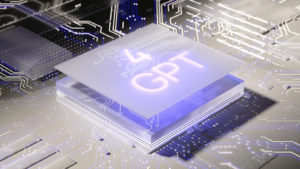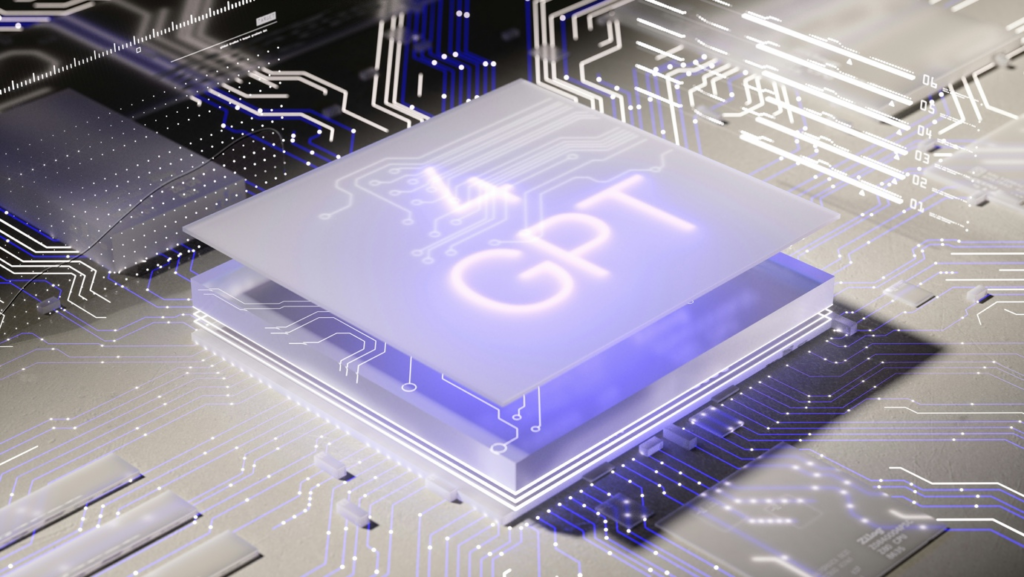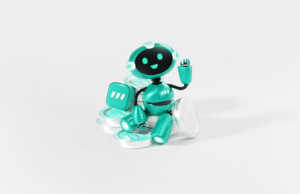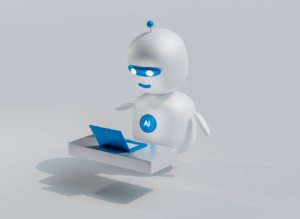 From automating repetitive tasks to offering intelligent code suggestions, AI code assistants are making coding faster, more accurate, and even fun!
From automating repetitive tasks to offering intelligent code suggestions, AI code assistants are making coding faster, more accurate, and even fun!
The programming world is undergoing a seismic shift; imagine a world where coding is faster, more accurate, and even fun. AI code assistants are making this a reality. These tools transform how programmers work, helping them write code more efficiently, streamline workflows, and elevate the overall quality of software development with fewer errors. In this article, we explore the world of AI code assistants, their benefits, popular options, the challenges they pose and what the future holds.
The Rise of AI in Programming
- Historical Context
In the early days, AI in coding was more of a concept than a reality. Early efforts focused on creating essential code generators and simple algorithms to assist with repetitive tasks. AI has been around for decades, but its application in programming is relatively new. Initially, AI was used in basic applications like spell-checkers and simple automation. These tools were limited in scope and often needed more sophistication to be genuinely effective. However, as technology evolved, so did AI’s capabilities, eventually leading to its integration into more complex tasks like coding.
- Recent Developments
Fast forward to today, and the landscape has drastically changed. Modern AI tools for programmers have become incredibly advanced, leveraging machine learning and natural language processing (NLP), which have paved the way for sophisticated AI code assistants. These tools can now understand and generate code, making them invaluable resources for developers.
Key Features of AI Code Assistants
- Code Suggestions and Autocompletion
One of the standout features of AI code assistants is their ability to provide intelligent code suggestions and auto-completion. These tools analyse the context of the code you are writing and offer relevant suggestions, saving time and reducing the likelihood of errors.
- Error Detection and Debugging
AI code assistants excel at error detection and debugging. They can identify potential issues in your code in real time, allowing you to fix problems before they become major headaches. This not only improves code quality but also speeds up the development process.
- Code Refactoring
Another critical feature is code refactoring. AI tools can help you clean up your code, making it more efficient and easier to read. This is particularly useful for large codebases where manual refactoring is time-consuming.
Revolutionising Programming: AI Code Assistants Transform the Industry
Benefits of AI Code Assistants
- Speed and Efficiency
One of the most significant advantages of AI code assistants is the boost in productivity and the speed they bring to the table. By automating repetitive tasks and providing quick solutions to coding problems and instant code suggestions, these tools significantly reduce the time it takes to write and debug code, making programmers focus on more complex and creative aspects of their work.
- Error Reduction
Human error is inevitable, but AI code assistants can help minimise it. By continuously analysing the code, they can identify and correct mistakes before they become more significant issues, ensuring higher code quality. Therefore, AI code assistants help reduce error rates by catching mistakes early and offering suggestions for best practices. This leads to more reliable and robust software, which is crucial in today’s fast-paced development environment.
- Enhanced Creativity and Learning Curve
AI code assistants can also enhance creativity by suggesting alternative approaches and solutions that a programmer might not have considered. This broadens a developer’s perspective and leads to more innovative and efficient code. For junior programmers, AI code assistants can be an invaluable learning tool. They provide instant feedback and guidance, helping new coders understand the intricacies of programming languages and best practices more quickly.
Popular AI Code Assistants in the Market
- GitHub Copilot
GitHub Copilot is one of the most popular AI code assistants available today. Developed by GitHub in collaboration with OpenAI, it uses machine learning models to provide real-time code suggestions, making coding faster and more efficient.
- Tabnine
Tabnine is another powerful AI code assistant that leverages deep learning algorithms to provide code completions. It supports various programming languages and integrates seamlessly with popular code editors like Visual Studio Code and IntelliJ IDEA.
- Kite
Kite focuses on enhancing productivity by offering advanced code completions and documentation snippets. It uses machine learning to understand the context of the code and provide relevant suggestions, making it a favourite among developers.
How AI Code Assistants Work
- Machine Learning Algorithms
AI code assistants rely on machine learning algorithms to analyze vast code data. These algorithms learn from patterns and trends in the data, enabling them to predict and suggest code that fits the context in which it is being written.
- Natural Language Processing
NLP is a crucial component of AI code assistants. It allows these tools to understand and generate human-like text, making interactions with the code more intuitive. AI code assistants can provide more accurate and relevant suggestions by understanding the natural language.
Case Studies: AI Code Assistants in Action
- Startups
Many startups are leveraging AI code assistants to accelerate their development processes. For instance, a small tech company developing a new app used GitHub Copilot to reduce their coding time by half, allowing them to launch their product ahead of schedule.
- Large Enterprises
Large enterprises also benefit from AI code assistants. A multinational corporation used Tabnine to streamline its software development, resulting in a 30% increase in productivity and significantly reducing code errors.
Dive into how these groundbreaking tools are changing the programming landscape.
Challenges and Limitations
- Ethical Concerns
While AI code assistants offer numerous benefits, they also raise ethical concerns. Issues like data privacy, algorithmic bias, and the potential misuse of AI-generated code are essential considerations that must be addressed.
- Dependence on AI Tools
There is also the risk of over-reliance on AI code assistants. Developers may become too dependent on these tools, declining their coding and critical thinking abilities.
- Privacy and Security Concerns
Privacy and security are significant concerns when using AI code assistants. These tools often require access to your codebase, which can pose risks if the data is incorrectly handled. Ensuring that the AI tools you use have robust security measures is essential.
- Cost and Accessibility
Another challenge is the cost and accessibility of AI code assistants. Some more advanced tools can be expensive, making them less accessible to smaller organisations or independent developers. Additionally, integrating these tools into existing workflows can be a complex process.
How AI Code Assistants Are Changing the Industry
- Impact on Software Development Process
AI code assistants are fundamentally changing the software development process. They streamline coding, reduce errors, and enhance collaboration among development teams. This leads to faster release cycles and more innovative software solutions.
- Influence on Junior Programmers
For junior programmers, AI code assistants significantly boost their learning and productivity. These tools act as mentors, offering guidance and instant feedback, which accelerates their development and helps them gain confidence in their coding abilities.
Future of AI in Programming
- Emerging Technologies
The future of AI in programming looks promising, with emerging technologies like quantum computing and advanced machine learning models set to revolutionise the field further. These advancements will likely lead to more powerful and intuitive AI code assistants.
- Potential Impact on the Job Market
As AI code assistants become more prevalent, there is concern about their impact on the job market. While these tools can increase productivity, they may also reduce the demand for entry-level programming positions. However, they can also create new opportunities in AI development and related fields.
- Potential Developments
The future of AI in programming looks promising, with potential developments including more advanced natural language processing capabilities, better integration with development environments, and enhanced machine learning algorithms that can predict and solve complex coding issues.
- Long-term Implications
In the long term, AI code assistants could shift how programming is taught and practised. As these tools become more sophisticated, they could enable more people to learn coding, democratising software development and fostering innovation across various industries.
Conclusion
AI code assistants are transforming the programming landscape, making coding faster, more accurate, more efficient, reducing errors, enhancing learning and more innovative. While there are challenges and ethical considerations to address, the benefits of these tools are undeniable. AI’s role in programming will only grow as technology advances, offering exciting possibilities for the future.
FAQs
- What is an AI code assistant? An AI code assistant is a tool that uses artificial intelligence to help programmers write, debug, and optimise code more efficiently by providing real-time suggestions, error corrections, and code completions.
- How do AI code assistants improve coding efficiency? They automate repetitive tasks, provide instant code suggestions, and help reduce errors, allowing developers to focus on more complex and creative aspects of coding.
- Are there any risks associated with using AI code assistants? There are risks, such as over-reliance on AI tools, potential privacy and security concerns, and the cost and accessibility of advanced AI code assistants. Using these tools responsibly and ensuring they have robust security measures is essential.
- Can AI code assistants replace human programmers? AI code assistants are designed to augment human programmers, not replace them. They help improve productivity and code quality but still rely on human oversight, creativity and problem-solving skills since they are still essential in software development.
- What are some popular AI code assistants available today? Today’s most famous AI code assistants include GitHub Copilot, Kite, and Tabnine. These tools offer a range of features, from code suggestions to error detection, making them indispensable in the modern programmer’s toolkit.
- What is the future of AI in programming? The future of AI in programming includes advancements in natural language processing, better integration with development environments, and enhanced machine learning algorithms. These developments could democratise software development and foster innovation across various industries.





